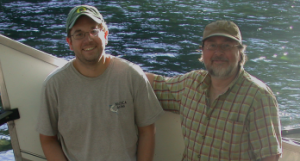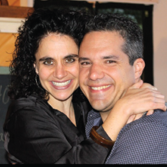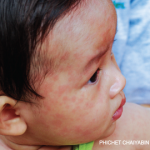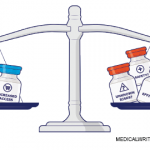The Calabreses have already published together, and Len uses Cassie as a resource for how to become more involved in social media. Len even has a Wikipedia page.
The elder Calabrese says his daughter’s inquisitive presence in the hospital is just as valuable for him as his expertise and experience are for her. Maybe more so.
“I’m much younger today than I used to be,” he says. “You have that constant buzz, and you’re generating the questions rather than the answers. As long as you keep doing that, I think you keep getting younger. Once you think you start the knowing the answers, it’s all downhill from there.”
Brotherly Bond

Brothers Brian Daikh, MD, and David Daikh, MD, PhD
New ACR President David Daikh, MD, PhD, didn’t necessarily see himself as a father figure to his brother Brian, but given an age difference of eight years, he always knew he’d be a role model.
Little did he know that Brian Daikh, MD, would end up in his literal footsteps, including medical degrees from Oregon Health & Science University School of Medicine, fellowships in rheumatology and then decades of clinical practice.
“We’ve ended up doing a lot of similar things,” Brian says in an understatement.
“I always say that he’s younger, smarter and better looking than I am,” David says of Brian.
For David, ACR president, fellowship program director University of California San Francisco, and an academic rheumatologist who does research, teaching and sees patients, there is tremendous value in talking to Brian, who is primarily a clinician, as well as a clinical assistant professor at Tufts University School of Medicine in Boston.
“There’s a kind of shared experience. … You don’t have to go through a lot of explanation to understand where the other person is coming from or where your question came from,” David says. “It’s great to be able to pick up the phone and ask my brother what he thinks about a case.”

Tina Elias-Todd, MD, and
Derrick Todd, MD
Of course, you don’t need to be related to the ACR president for your voice to be heard, but Brian adds that it’s nice to know that as a clinician, his viewpoints have a direct path to the specialty’s highest level. “In rheumatology, people who are in private practice rheumatology have a much different perspective on issues than someone who is a scientist or someone in an academic center, and it’s nice to be able to make our voices heard,” he says.

